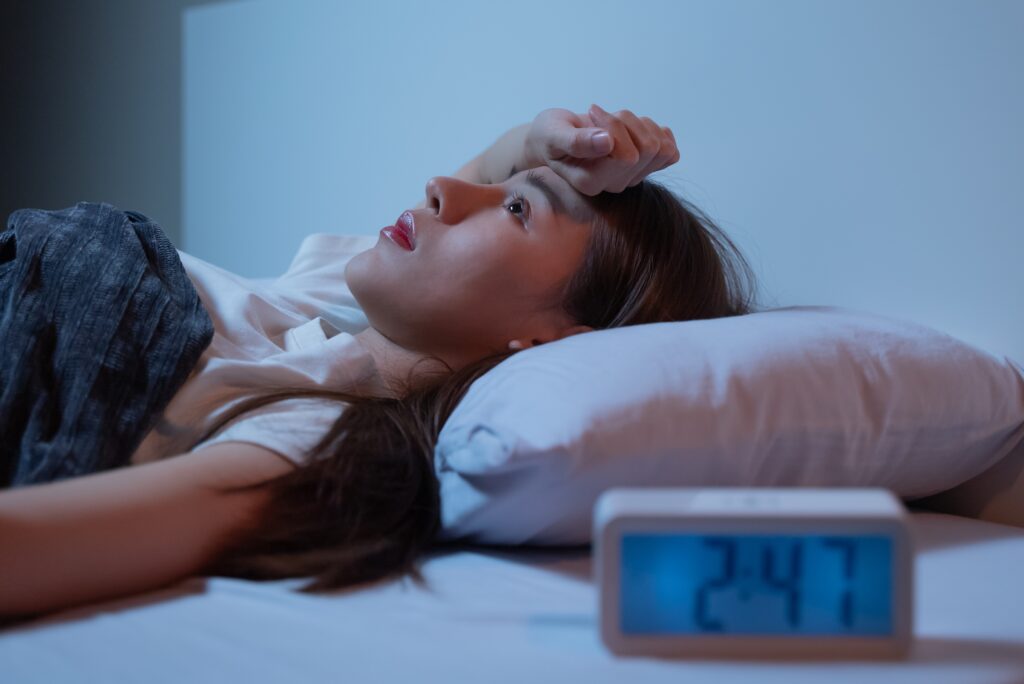How Poor Sleep Triggers Sugar Cravings and Weight Gain

If you’ve ever found yourself reaching for a muffin or an extra-large latte after a sleepless night, you’re not imagining things. Poor sleep really can mess with your hunger cues, sugar cravings and ultimately, your weight. While we often talk about food and exercise as the key drivers of metabolism, sleep is the quiet third player that’s just as important. When sleep falls short, the body compensates, and usually not in your favour.
The connection between sleep and metabolism
Sleep is a powerful regulator of hormones that influence everything from appetite and blood sugar control to how much fat you store. During deep, restorative sleep, the body fine-tunes many of its key metabolic processes. This includes balancing blood sugar, regulating hunger and fullness hormones, and repairing muscle tissue.
But when sleep is disrupted or cut short, this finely tuned system becomes chaotic. Research shows that just one night of poor sleep can increase insulin resistance and lead to a spike in hunger hormones the next day. Over time, this disruption can lead to weight gain, particularly around the abdomen.

How poor sleep leads to sugar cravings
One of the most direct ways sleep deprivation impacts your appetite is through hormonal imbalance. Ghrelin and leptin are two hormones that regulate hunger. Ghrelin tells your brain you’re hungry, while leptin signals fullness. Sleep deprivation increases ghrelin levels and decreases leptin, leaving you feeling hungrier than usual and far less satisfied after eating.
Cortisol, the stress hormone, also increases when sleep is poor. Elevated cortisol levels can lead to cravings for quick energy sources like sugary and high-fat foods. A study found that participants who slept fewer than six hours per night were more likely to choose calorie-dense, carbohydrate-rich foods the next day compared to those who had a full night’s sleep.
Sleep loss doesn’t just mess with your hormones. It also affects how your brain makes decisions. The areas of the brain responsible for impulse control and rational thinking become less active, while the reward centres become more reactive. This means that not only are sugary foods more appealing, but you’re also more likely to give in to those cravings.

The impact of increased sugar intake on weight gain
Once those cravings kick in, the effects can snowball. Consuming sugary snacks and high-calorie comfort foods adds up quickly. This often leads to a caloric surplus, which is one of the most direct contributors to weight gain.
As blood sugar rises from sugar-rich meals, the body releases insulin to help move glucose into cells. Frequent spikes in insulin not only promote fat storage but can also lead to greater fat accumulation around the waistline. Over time, elevated insulin levels are associated with insulin resistance and increased risk of metabolic conditions.
Sleep deprivation also slows down your metabolism. A study found that people who were sleep-deprived burned fewer calories at rest compared to those who were well-rested. This means even if your diet doesn’t change dramatically, your body may be less efficient at burning calories, making it easier to gain weight.

Strategies to improve sleep and reduce sugar cravings
Getting better sleep isn’t just about feeling more alert in the morning. It’s a key part of managing hunger, cravings and weight. Establishing a consistent sleep routine can make a significant difference. Going to bed and waking up at the same time each day, even on weekends, helps regulate your internal clock and makes falling asleep easier over time.
Creating a relaxing bedtime routine is equally important. Activities like reading, stretching or taking a warm bath can help signal to your body that it’s time to unwind. Aim to switch off from screens at least an hour before bed. Blue light from phones and computers can suppress melatonin, the hormone that helps you feel sleepy.
Your sleep environment matters too. A dark, quiet and cool room is ideal for quality sleep. Consider blackout curtains, earplugs or a white noise machine if your surroundings are noisy or bright.
Be mindful of what you consume in the hours before bed. Caffeine can linger in your system and disrupt sleep, so try to avoid it after mid-afternoon. Heavy meals or sugary snacks right before bedtime can also lead to restless sleep.
On the nutrition front, focus on meals that are high in protein and fibre to keep your blood sugar stable. This can help reduce those intense sugar cravings that follow a night of poor sleep. Incorporating magnesium-rich foods like leafy greens, seeds and whole grains may also support relaxation and deeper sleep.
Managing stress is another essential piece. High cortisol levels, fuelled by both stress and lack of sleep, can push your body to crave sugar as a coping mechanism. Gentle movement, yoga or even five minutes of breathwork before bed can help lower cortisol and set the stage for better rest.
The bottom line
Prioritising sleep for better health
Sleep is often the first thing we sacrifice when life gets busy, but it’s one of the most impactful habits you can work on. Prioritising sleep not only helps you feel more energised and clear-headed but also reduces cravings and supports a healthier weight.
If you’ve been trying to improve your diet and exercise but feel like you’re not making progress, take a closer look at your sleep. The hours you spend resting could be the missing link in reaching your health goals. By making simple but consistent changes to your sleep routine, you can reset your hormones, tame your cravings and give your metabolism the support it needs.





